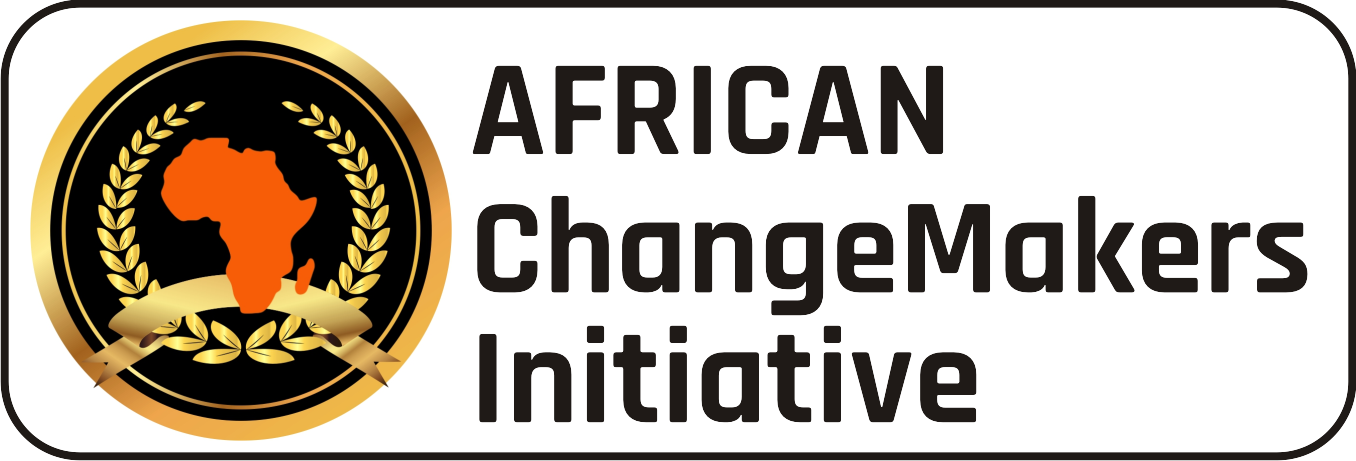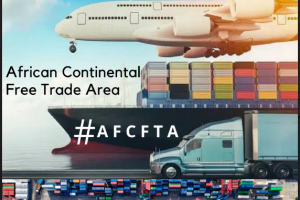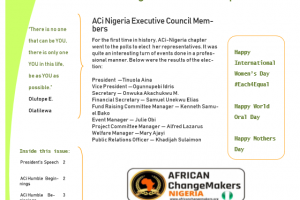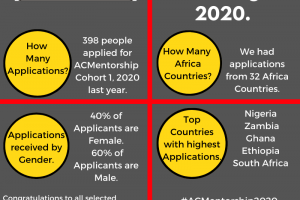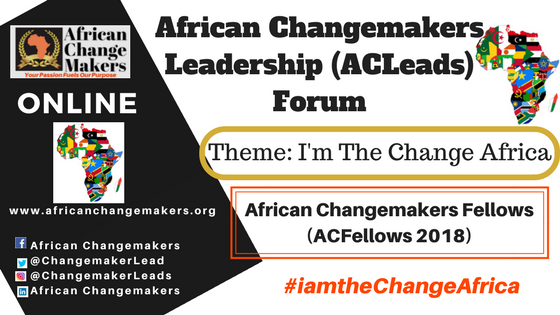
ACLeads Online Meet-Up by ACFellows – Kenya
Introductions
The ACFellows introduced themselves to each other, providing a brief background of what they do.
Originally from Congo-Brazzaville, Christ Mouanga has a background in Bachelor of Arts and is interested in deepening his understanding of sustainable development goals. He has participated in fellowships and conferences to gain experience in social enterprise. He is interested in combining business and social enterprise and work in a NGO.
Nassor Mataka is a trainer and business mentor based in Mombasa, Kenya. He trains youth between ages 18 – 35 in business and entrepreneurship, labour market and also conducts mock interviews. He is currently introducing new programs that will cover sexual and reproductive rights and security.
Rosebell Abwonji is currently an Operations Officer working for a not-for-profit organisation in Narok, Kenya. She considers herself an intrapreneur and is passionate about plugging in to young businesses and developing sustainable systems that will lead to thriving enterprises.
Challenges That Social Entrepreneurs Face.
The ACFellows tackled some of the challenges that social entrepreneurs face and came up with the points below:
1. Congo Brazzaville
–Incompetence – We have great ideas but do not know how to move it from an idea into an actual project
–Funding – Financial resources are not easily available. Institutions like banks have prohibitive terms for most social entrepreneurs and limit what they can do
–Institutional environment – There is a lot of bureaucracy within institutions that prohibit social entrepreneurs from starting off
–Land – Social entrepreneurs focused on bringing up agricultural sectors face challenges acquiring land due to corruption and high prices. Also, while land in rural areas is cheaper, it is often inaccessible due to poor infrastructure.
–Electricity – In most parts, electricity is unreliable and prohibits a productive work environment
–Skilled labour – Most people are not properly trained and lack the necessary skills required to become successful social entrepreneurs.
–Infrastructure – Such as good roads, internet access etc are very poor and will need to be worked on so that more social entrepreneurs can come up
–Cultural Challenges – It is hard to adopt modern ideas and innovations to rural regions especially as the people from these regions may not be as informed as those from urban areas.
2. Kenya
–Creative thinking – There is lack of creative thinking amongst social entrepreneurs. Most people prefer to imitate existing ideas as opposed to coming up with innovative solutions
–Land issues – There are a lot of land issues that social entrepreneurs face in the form of corruption, land grabbing and finding affordable property to undertake their projects
–Mentality of young people – With the rise of the millennials, it has become a challenge to manage , their attitude – expecting quick fixes, quick money, demanding for money but not willing to put the work in etc
–Financing – While some forms of funding are available eg Uwezo Funds, they are primarily given to groups and not individuals. This can be a challenge for social entrepreneurs who want to venture out on their won as they must always be in groups. Additionally, some of these funds are given by way of ‘connections’ with people working within the institutions or paying bribes
–Lack of ownership – Dependency on foreign aid is high among the communities. Therefore, when social entrepreneurs develop sustainable solutions for some communities they meet resistance as the communities would prefer to continue receiving free money from donors as opposed to working for themselves.
–Poor research – Some of the solutions offered by social entrepreneurs are not researched well and end up failing. Some of the research is based on the perception of the social entrepreneur as opposed to the actual needs and wants of the community they are working within.
Overall, the ACFellows agreed that the challenges faced by social entrepreneurs from both regions were very similar.
C) Learnings From African Changemakers Fellowship
The Fellows discussed the valuable lessons that they have picked up so far from the African Changemakers Fellowship:
–Project implementation
–Cross exchange of ideas
–Diverse view points from people around the continent
D) Assistance From Other Fellows
The Fellows outlined the areas that they would be interested in getting assistance from other Fellows:
i. Chris
— Scholarship opportunities for social entrepreneurship and development, peace and security.
— Collaborative opportunities through volunteering/jobs with other fellows within these fields.
ii. Nassor
— Networking opportunities.
— Training and learning opportunities, specifically in Monitoring & Evaluation.
— Exchange visits.
— Platforms that encourage the exchange of ideas.
iii. Rosebell
— Fellowships with organisations centred around innovation and transformative leadership
— Training opportunities around Africa and globally that focus on sustainable business systems and models
— Mentorship
E) Professional Ambitions
There was a discussion on the professional ambitions of each fellow:
i. Chris
— Pursue a Masters Degree in
— Social Transformation or Peace & SecurityGet active within his networks
— Gain experience in volunteering –AU Youth Corp, UN Volunteer group
— Garner more experience and connections in social enterprise
— Pursue funding opportunities
ii. Nassor
— Continue his passion – working with communities and helping young people develop entrepreneurship skills
— Develop his skills further in Monitoring & Evaluation as well as project management
— Enhance his research skills
iii. Rosebell
— Work with small businesses around the continent to gain further experience on setting up sustainable systems and innovation.
–Write a book that will highlight the stories of African business women holding leadership roles that will act as a learning tool and guide for future generations of African women.
